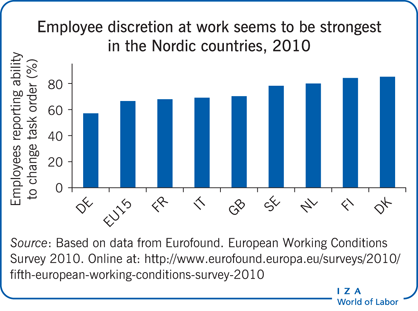Elevator pitch
A wide range of high involvement management practices, such as self-managed teams, incentive pay schemes, and employer-provided training have been shown to boost firms’ productivity and financial performance. However, less is known about whether these practices, which give employees more discretion and autonomy, also benefit employees. Recent empirical research that aims to account for employee self-selection into firms that apply these practices finds generally positive effects on employee health and other important aspects of well-being at work. However, the effects can differ in different institutional settings.

Key findings
Pros
High involvement management is associated with higher productivity and better economic performance of firms.
High involvement management gives more discretion to employees, and high job control weakens the negative link between job demands and employee well-being.
Greater autonomy at work leads to greater employee well-being.
Multiple theoretical frameworks link high involvement management to employee well-being and health outcomes.
Innovative work practices should lead to working smarter, not necessarily harder.
Cons
High involvement management can lead to higher work intensity.
Increasing the intensity of work may erode employee well-being and harm performance.
High involvement management might increase strain and lead to higher risks of occupational accidents and sickness-related absenteeism.
Whether it is profitable for firms to redesign jobs for workers’ benefit varies with firm characteristics and market conditions.
There is no agreement on which sets of high involvement management practices are sufficient to transform the working environment.